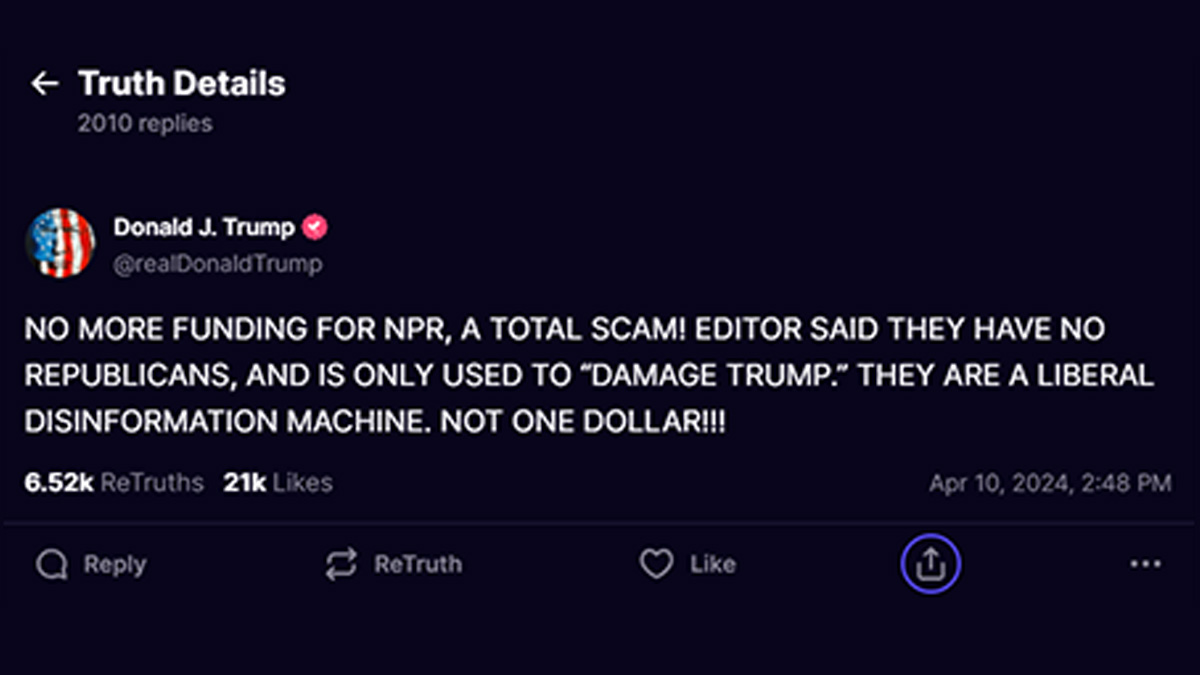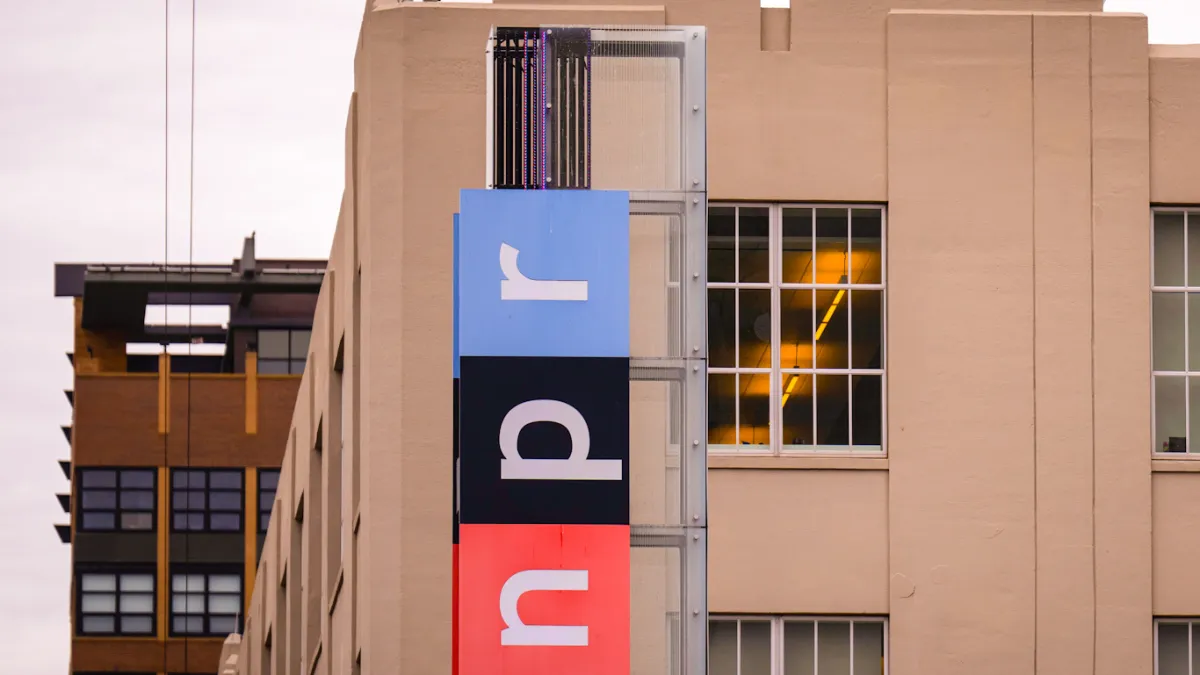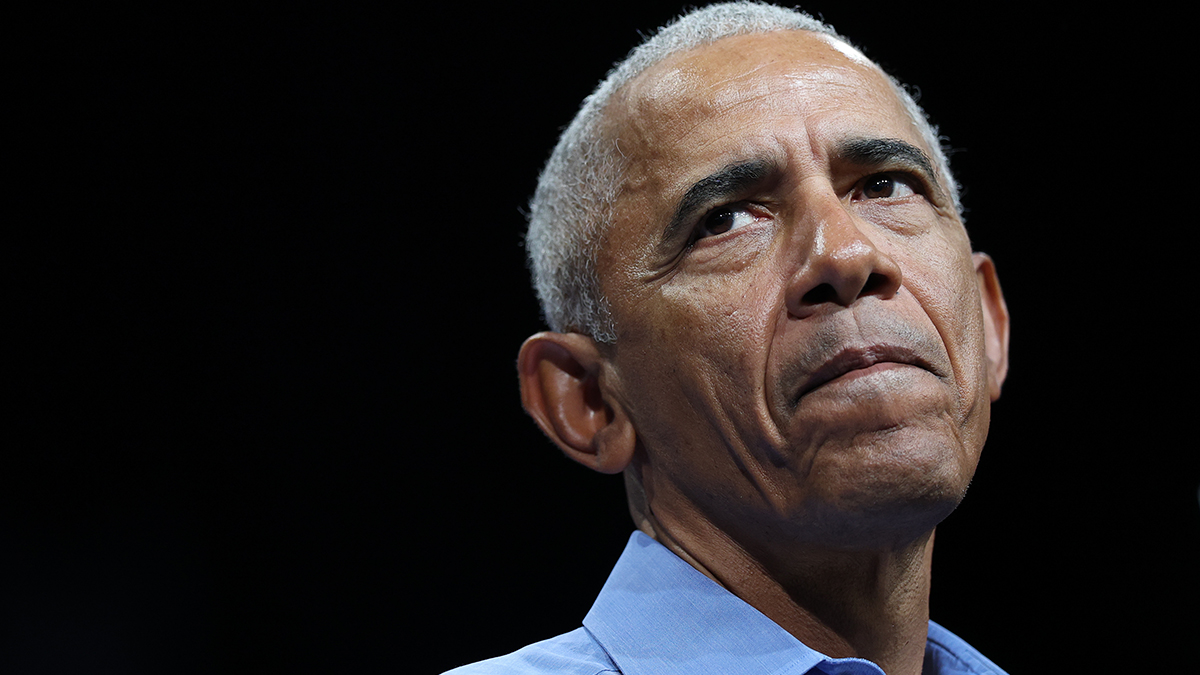Regardless of where you grew up in the States, you’ve heard a National Public Radio segment in your life. Through the endless corn fields of Nebraska to the shining seas of the coasts, more than 1000 public radio stations fall under the umbrella of NPR.
Operating independently of any government or corporation, the network has a duty to report unbiased news – a duty some on the right are saying the syndicate is failing to uphold. NPR has been accused of being unbiased since the early 2000s, but the 2016 election put the station on many conservative’s list of “untrustworthy” news outlets. And now, an insider report on the network’s hiring practices is fueling the conversation yet again.
Why do people want to Defund NPR?

NPR has been fielding accusations of bias for years. The network has been fielding accusations of liberal lean since the 70s, though the calls have been getting louder since the ‘90s – only recently has that manifested into a national call for the network to lose its funding.
The Corporations for Public Broadcasting (CBP), which dispenses the funds for public programming, first cataloged the movement in 2021. The page, which features a single listener submitted note declares, “We are fed up! NPR does not deserve federal funding,” before dissolving into a rant about the “anti-American network.”
The unhinged submission might sound like something your drunk uncle would say during an uncomfortable family dinner, but it does mirror a somewhat less vitriolic feeling that many Americans outside of the liberal lean have been feeling – including some of those involved in the organization itself.
NPR senior business editor Uri Berliner wrote a lengthy article for Free Press about his tenure at the network. He asserted that over the years NPR had changed from a liberal lean to an all-out liberal bend and cited hemorrhaging conservative and moderate listeners as proof. The problems, he believed, centered on former CEO John Lansing.
Berliner, a 25 year veteran of NPR, used his intimate knowledge of the network’s inner workings. Citing coverage of specific articles and coverage, he pointed to a lack of differing ideological viewpoints. A combination that led, in his experience, to less reporting and more “telling listeners what to think.”
In the newsroom, one he asserts has done everything and more to create diverse ethnic viewpoints, political leanings were a point of apathy. The newsroom hosted 87 democrats, but not a single republican, but when Berliner tried to bring attention to the one-sided staffing, he was met with indifference that went to the very top brass at the network. “And this, I believe,” He writes, “is the most damaging development at NPR:
The piece furthered conservative talking points centered on how they feel NPR has become a “liberal propaganda mouth piece.” While Berliner asserts that readers should investigate for themselves the assertions he has made, that’s a big ask for folks now championing the piece.
Donald Trump has loudly decried NPR as, “A TOTAL SCAM!” in the wake of Berliner’s article. Congress people from Ted Cruz to Mitt Romney have joined the defund NPR train, calling to strip the “Partisan propaganda institution” of its taxpayer funding. NPR claims its government contributions account for less than “less than 1 percent of its $300 million annual budget.”
However, the funding waters are a bit more muddled than that. According to Howard Husock, who served on the CPB board from 2013-2018, local stations pay NPR proper to license flagship shows like “All Things Considered.” The revenue from the agreement accounted for $90 million of NPR’s revenue in 2021 a far cry from 1% of $279 million, and a revenue only exceeded by NPR’s corporate sponsorships.
NPR has admitted that the loss of federal funding would kneecap the station’s ability to pay for programming and would result in less journalism from the network. It seems like a safe wager to assert that those conservative outlets and talking heads touting the article as evidence to defund NPR hardly took the time to read its 3500 words.
Berliner ended his confessional by opining, “Despite our missteps at NPR, defunding isn’t the answer. Defunding, as a rebuke from Congress, wouldn’t change the journalism at NPR. That needs to come from within.”
Katherine Maher, the new CEO of NPR responded to Berliner’s op-ed saying,
“Asking a question about whether we’re living up to our mission should always be fair game: after all, journalism is nothing if not hard questions. Questioning whether our people are serving our mission with integrity, based on little more than the recognition of their identity, is profoundly disrespectful, hurtful, and demeaning.”
Why is NPR being accused of being biased?
Accusing NPR of being biased is definitely not new. Since the mid-to-late ‘90s, both sides of the aisle have felt that the network was overtly playing favorites at some point or another. It’s been accused of being “elitist,” of being “state-affiliated media,” and of “upholding the status quo” over its 50-year syndication.
The first accusation came in the early 2000s from CAMERA (the Committee for Accurate in Middle East Reporting in America), which alleged that NPR’s reporting on the Israeli-Palestinian crisis was skewed and more pro-Palestinian. Others accused NPR of having pro-Israel biases in its reporting. In response to a boycott from Jewish and Arab groups, NPR hired an outside overseer to assess coverage for more than a decade, a study that found a, “lack of completeness but strong factual accuracy and no systemic bias.”
Around that time, NPR warded off attacks from FAIR –a left-wing media critique organization – which accused the network of relying on elite and oft used media contributors. Additionally, FAIR accused NPR of having a lack of diversity, a failing that NPR acknowledged in 2014 – though it was centered on guests, rather than contributors.
American professor Noam Chomsky accused the station of perpetuating the status quo and conceding to the ideological powerhouses in the metropolitan areas it worked out of, like Washington D.C., in order to preserve funding. NPR claims to receives little direct government funding from the Corporation for Public Broadcasting. Instead, it requires is partner radio stations to purchase national segments like “All Things Considered” which are produced with federal money, to allegedly pad a sizable piece of its budget.
The network deactivated its accounts on Twitter, now X.com, after the site labeled it “state-affiliated media” –the same title given propaganda arms for countries like Russia, China and other authoritarian countries – in a bid to protect its credibility in 2023. In the wake of its departure, site owner Elon Musk threatened to give the @NPR handle to another company – a move that was largely regarded as a bad idea. It never came to pass and NPR retains the handle.











Published: Apr 15, 2024 01:34 pm